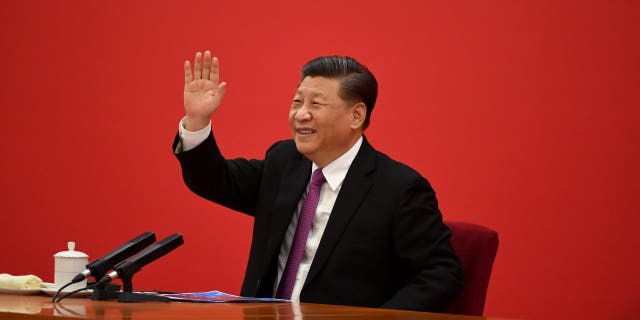2021 in review: US-China tensions rise over Beijing’s aggression toward Taiwan
NEWYou can now listen to Fox News articles!
Tensions between the U.S. and China continued to rise in 2021 over Beijing’s aggression toward Taiwan as well as signs the U.S. government is prepared to aid Taipei if it is invaded or attacked by China.
China claims Taiwan is part of its own territory and has rejected its claims of independence. The two countries split in 1949, and China has been increasing pressure on the self-ruled nation while opposing its involvement in international organizations such as at the United Nations. The U.S. does not formally recognize Taiwan but maintains an unofficial relationship and is supportive of its democratic government.
The dueling policies have for years led to a diplomatic tightrope that both sides have had to navigate. But 2021 saw that tension strained further.
Change of U.S. administrations
The year started with then-Secretary of State Mike Pompeo lifting rules that barred interactions between U.S. and Taiwanese diplomats, a move that drew a rebuke from the communist regime in Beijing.
If China was hoping for a softer stance from the incoming Biden administration on the thorny question of Taiwan, it was likely disappointed when Taiwan’s top representative was invited to President Biden’s inauguration.

Chinese President Xi Jinping speaks with Russian President Vladimir Putin via video link from the Great Hall of the People Dec. 2, 2019, in Beijing, China.
(Noel Celis, Pool/Getty Images)
Just days after the inauguration, China sent fighter jets into the Taiwan Strait in what was seen as a show of force to the new administration, which showed no sign of dropping the Trump administration’s broader pro-Taiwan policy.
The Biden administration made a number of pro-Taiwan statements over the ensuing months, including Secretary of State Antony Blinken’s call for Taiwan to be admitted to the World Health Organization, something furiously opposed by Beijing.
The rhetoric escalated from Beijing with Chinese President Xi Jinping claiming China has a “historic mission” to control Taiwan and urging other countries not to interfere.
CHINA CLAIMS US WILL PAY ‘UNBEARABLE COST’ FOR AIDING TAIWAN
In August, the White House clarified comments made by Biden suggeting the U.S. has a “sacred commitment,” that “if, in fact, anyone were to invade or take action against our NATO allies, we would respond. Same with Japan, same with South Korea, same with Taiwan.”
The remark quickly made headlines because U.S. policy for decades has been one of “strategic ambiguity” toward how it would respond to such an attack. The 1979 Taiwan Relations Act commits the U.S. to support Taiwan, including providing it defensive capabilities, but not necessarily to engage in a military conflict. An administration official later said the policy had not changed.
China ramps up aggression
Coinciding with the disastrous U.S. withdrawal from Afghanistan, China began ramping up its aggression again in Taiwan. Some experts linked the two acts.
In October, China sent more than 80 planes, including fighter jets and bombers, toward…
Read More: 2021 in review: US-China tensions rise over Beijing’s aggression toward Taiwan
